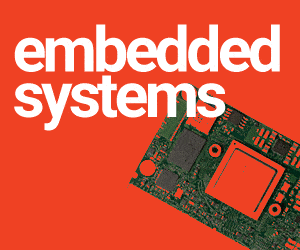[stextbox id=”info”]
The shortage of instrumentation engineers becomes more due to less number of colleges offering B.Tech degree in instrumentation and control in India.
— Prof. Rekha Agarwal, head of Department of Instrumentation and Control Engineering, Amity School of Engineering and Technology
[/stextbox]
Most of the jobs available in this field can be bucketed under two broad categories. “An instrumentation engineer usually gets involved either in the manufacturing and supply of the instruments or in the companies who use them,” says Mittal. The roles are defined depending on the requirements of the job. “Typically, an instrumentation engineer checks system’s complaints against the instruments, installs new systems or instruments, and evaluates the prototype,” explains Mittal.
[stextbox id=”info”]
The Indian automation market has acquired the critical momentum to propel the instrumentation and control industry to a higher growth trajectory
— Rohit Sinha, head-human resources, L&T Engineering, E&C Division
[/stextbox]
According to Mittal, with a sound knowledge of instrumentation and control, one may even be involved in designing a robot that can perform critical surgery or a system that follows Fuzzy logic control.
Further, you can also get abundant opportunities for higher studies in Indian and foreign universities.
Know the moolah
A fresh instrumentation engineer may start at Rs 200,000-400,000 per annum. However, the scene is a little bit daunting for diploma holders as their starting salary is only Rs 150,000 to Rs 200,000 per annum. Professionals with five to seven years of experience may get anywhere between Rs 500,000 and Rs 1 million per annum. Note that the salary is on the higher side for design engineers. If you can grab an international opportunity, the minimum salary may be in the range of Rs 2 million within about five years.
You could start at a junior level as part of a major project and grow to become a project leader in 10-12 years’ time. In most cases, salaries are proportional to the cost of the projects. For this kind of position, along with basic engineering, you will need to do project management consultancy to ensure reliable project execution.
Know the selection criteria
I believe, up to this point, you have received enough boosters about the opportunities-to-be grabbed in the instrumentation field. Let’s ask the experts how to get a foothold in this field.
“An individual interested to make his career in instrumentation engineering can take up ‘electronics and instrumentation engineering’ or simply ‘instrumentation engineering’ branch at the undergraduate level,” says C.P. Ravikumar, technical director-University Relation, Texas Instruments.
Mittal points out the opportunities available for diploma holders in the service sector. This field is specifically suitable for engineering professionals with multidisciplinary as well as project management interests, such as project engineering. Exciting and technically satisfying careers can be pursued in the field of technical marketing, design engineering, project management, integration and servicing.
And if you consider technology, I must say wherever there is a need for process control to increase productivity, there is instrumentation. It could be a human gene analysis laboratory or a locomotive workshop.
For working in this field, it is mandatory to have in-depth knowledge of mathematics and physics. With the advancement and widespread applications of electronics and computers in instrumentation and control, the syllabus is framed to include core courses of electronics as well as computer engineering.
Though an engineering degree is the obvious qualification to earn, graduate and postgraduate degree holders in physics also qualify to work in this field.
“The subject of instrumentation is quite vast. It is not fair to expect both breadth and depth from a fresh recruit. At the undergraduate level, the industry expects a good understanding of fundamental concepts,” says Sinha.
In sync with Sinha’s view, Kokate explains these fundamental concepts as a combination of both hardware and software knowledge along with an idea about the application domain. He specifically emphasises on “the knowledge of process plant, quality concerns, and international standards for process control.” Automation challenges in mechanical, electrical, electronic or interdisciplinary applications are also equally important. Additionally, an instrumentation engineer needs to have electrical engineering knowledge related to motors and pumps and chemical engineering knowledge related to reactors. Other than this, skills in SAP, Web designing, Internet protocols, digital communication devices and standards would be an added advantage for any aspiring candidate.
Agarwal expects a well-qualified instrumentation engineer to have sound knowledge of distributed control systems, programmable logic controllers, process control and CAD/CAM. The industry also looks for one who has in-depth knowledge of engineering fundamentals and is able to work in a team. Further, an instrumentation engineer should know how to transform design problems into floor solutions.
[stextbox id=”info”]






